Graham Reid | | 9 min read
.jpg)
They’ve certainly seen worse than this dark oak lined bar where Sydney Harbour glitters seductively just through the panelled doors. And they’ve certainly done this whole thing before, one of them with forgivable ill-humour.
But today they are jocular, blokey and their living-legend status is resting comfortably with them.
Robert Plant exchanges a firm handshake and throws a dismissive, “New Zealand, eh? Well, at least you’re not apologising for it,” at which Jimmy Page roars with laughter and starts in about Canadians always apologising for being Canadians.
There is mutual hilarity, Robert leaves looking for a coffee, and Jimmy settles back with the air of nothing to prove – and not much to say, really.
By the time Plant returns, we’ve canvassed good places to stay in Marrakesh, illicit substances found therein and the five interviews already this morning (“and I haven’t had bloody lunch yet”). And this is day four. There’s talk of their performing on some television show tonight hosted by Andrew Denton whose previous programme closed with various people – Rolf Harris among them – doing versions of Stairway to Heaven.
Maybe you should do a Rolf song tonight, then?
“Too obvious,” pronounces an imperious Plant sweeping back into the room and challenging: “So, how’s New Zealand then? Still all getting pissed at that racetrack?”
At 47, Robert Plant is, despite some facial crumpling, an unimpressive figure: taller than expected, draped in a flowing hippie shirt, encased in crushed velvet pants, the unruly ringlets constantly pushed back over the ears and shoulders ... He’s also a formidable interview subject.
While 50-year–old Page, all in faded black and languid beneath a worrying amount of seemingly windswept hair, offers anecdotes and mild laughter, Plant makes disconcertingly penetrating eye contact and is not a man to suffer fools at all – and he’s suffered a few at the previous day’s press conference.
Someone said “dinosaur,” to which he tartly rejoined, “Look, we are old blokes. But you journalists are neve short of the old cliché, are you?”
Plant might well feel miffed at the reception he is occasionally given. He is a witty, well read and sharply barbed conversationalist, who will – and often enough to make for awkwardness, does – answer a question with a monosyllabic “yes” or “no” to leave interviewers despairing. He’d done it to a few over these days in Sydney where he and Page have been promoting their new album No Quarter.
THERE’S something disconcerting about taking to Robert Plant – less so the pug-nosed, personable Jimmy Page – because here is the man who was the pivot of the sexual and pharmaceutical excess that was Led Zeppelin on tour in the 70s. The stories are legion and legendary, the girl in handcuffs, the customised jet (“Airforce One with satin sheets”), the notorious fish incident at the Edgewater Inn ...
And the other stuff: Plant lost his son, drummer John Bonham died in Jimmy Page’s house, tour manager Richie Cole telling all the heroin ‘n’ harem stories in his Led Zepplin Uncensored, the occult, Stairway to Heaven ...
Plant and Page carry that with them, and it’s difficult to get your head round, especially if you have only 20 minutes – and it’s ebbing away while Plant gets a coffee.
These guys not only invented a whole genre of music but also were ambassadors of the lifestyle. They made a million when a million meant something and when a truckload of cocaine was a very big truck indeed.
Understandably these aren’t matters either warms to and even when Plant broaches such subjects himself he’s quick to shut them down. He mentions dismissively being “crowned the kings of rock tedium.”
And the crown rests uneasily?
“It’s in the bin, it’s a paper crown anyway and comes from a glossy magazine with a bloke on the cover with his tongue sticking out,” he sniffs.
“Let it pass that at one time that bloke might have been him.
But settling back with a coffee on its way, he’s laughing about cricketer Geoffrey Boycott in the lobby (“still got that same bird with him with the tinsel skirt on”) and confusing Page with his reference to that racetrack in New Zealand.
“We didn’t play ... oh, you and the Big Log thing” says Page, who seemingly gets considerable private humour out of Plant’s solo Big Log album/tour. “We played at Western Springs and Richie had that motorbike...”
He embarks on an enjoyable reminiscence, then is reminded of playing the Auckland Town Hall when he was in the Yardbirds, way back in the mid-60s.
“Yeah, with Roy Orbison and the Walker Brothers on the bill ,” he recalls with remarkable clarity, given the manipulation of body chemistry since then. He strikes you as a loose, likeable fellow.
But jocularity isn’t why anyone is in this room for scrupulously timed interviews. Page and Plant are back – not as half of Led Zeppelin but as musicians with a new album and that has placed them and the media on this collision course again. Both remind the press of the consistently poor critical reception Led Zepp got.
Plant is a man who takes himself seriously – and challenges all others to do the same. And he’s keen to talk up No Quarter, an album born of an MTV Unplugged invitation. It’s a musical cross-fertilisation which sees them revisiting some Zepp material, notably a swirling version of Kashmir with Egyptian musicians, a claustrophobically intense reworking of Gallows Pole and The Battle of Evermore with Indian vocalist Najma Akhtar. There’s dull stuff, too, but also new songs: the hypnotic Yallah and City Don’t Cry, extended chant pieces recorded in Marrakesh with musicians of the Gnawa, a religious fraternity whose members are descendants of slaves brought from across the Sahara by Arab traders.
But the story of No Quarter starts slightly further back, when Page was remastering the Zepp albums.
“There’s no doubt for me there was a certain amount of nostalgia when I was listening to that variety of material” says Page. “I couldn’t fail to think I’d want to work with Robert again, but he was really busy touring – and there was the whole time-span of 14 years apart.
“But MTV gave us something that was concrete other than just meeting in offices to discuss old Zeppelin business or getting together to do charity things. And if we were coming back together again, we didn’t want to step backwards but move forward in every respect with new material or pulling new colours into the old songs. And presenting the Celtic-Gaelic aspect in higher focus...and exactly the same with the Egyptians.”
No Quarter Addresses those often over-looked aspects of Led Zeppelin and Plant makes a dismissive comment about journalists who think “Whole Lotta Love and Black Dog sums up a career of 12 years.”
By deliberately not inviting former Zepp keyboard player John Paul Jones into the project (he, somewhat miffed, says it would have been nice to have been told rather than read about it in the paper), they have avoided all the “Led Zeppelin Reunion” headlines. This was an opportunity to address unfinished musical business, not Zepp business, and when Martin Meissonnier (a French producer) provided them with some percussion loops, “it gave us the opportunity to get in a room and see what we could do after all that time,” says Page. “And the momentum of the writing process was so fast we worked with Michael [Lee, drums] and Charlie [Jones, bass] who had been Robert’s rhythm section.”
Later they relocated to Marrakesh for four days to record with the Gnawa, back to the city that Plant clearly loves. He accords considerable respect to the musicians of the region and is acutely aware of the history of western musicians – Brian Jones, Ornette Coleman and others – going to the area to record or rip off. Bill Laswell, who has recorded both the Gnawa and Master Musicians of Jajouka for his Axiom label, is “doing basically the equivalent of what Alan Lomax did in the Mississippi Delta in the 50s – field recordings of the very highest quality,” Plant says.
“The trouble is, a lot of other people are going out to Morocco now and are fusing – if that’s the right word – with the different musical traits there, but in a very obvious and flaccid way. So you get this sort of jazzy fusion mix with Gnawa or Berber music, but neither idiom gains from it.
“We’d never met the Gnawa when we went there but they were very patient and smiling is a great currency. There was a lot of that going on. Establishing some kind of spiritual relationship comes when you are making the music to some degree. But these people are spiritual tradesmen, so they know how far to go to get the results they need – and what they were doing with us was having a morning jam. And that about as far as it went.
“But it still makes a lot of other stuff I do feel useless. I waste a lot of time diddling about in rock star mode – which is pretty innocuous, really, and a very fine line between parody and invention – or in some great illumination of art and skill. Somewhere between that and Cliff Richard is a huge chasm.”
The spiritual aspect of the Gnawa – a people whose musical ceremonies are most often held to placate spirits and for healing purposes – is something both feel attracted to. Plant dismisses ‘negative music or negative attitudes” with a sniff of derision and maturely observes there’s a lot of negative music out there today, “but you can trade anger for solutions, rather than compounding the fury.”
With No Quarter the idea was to reopen doors. Page notes that 20 years ago they recorded Four Sticks and Friends (both reconsidered on No Quarter) with Indian musicians in Bombay, and Plant indicates that after sessions with the Meissonnier tapes they could hear possibilities opening up.
“We did a lot of work developing the music before going to Morocco and it was so strong and powerful it almost begged the question whether we needed to do any of the MTV stuff and whether it might be nice to just make a new record and be counted along with everybody else in a totally contemporary form without using the past and reiterating it. But, of course, the lure was working with the Egyptians and making Kashmir, Four Sticks and Friends the way we’d always dreamed of.
“We didn’t envision Kashmir this way originally, but as time goes by, you know, you can elaborate things and make them into something which is probably more fitting for the mood of the song.”
As you get older?
“As you get old,” he laughs. ”And also the fact that there’s now the whole linking of North African music with – well, between everywhere and everywhere. Youssou N’Dour [from Senegal] is in the charts with Seven Seconds now. It’s great all this meld is taking place ... but I can’t see Aerosmith working with a gamelan orchestra!
“So there are certain marriages made in hell. But if you’ve written songs that can have a new incarnation, then it’s worth exploring. We were very lucky because we travelled when we were young and used our concert tours over this way to go through Thailand and India. We were inspired by the big, beautiful world and, as Jimmy says, recorded in India in ’72. Then you go from that to ... last year I played in Chicago, before Jimmy and I got together, with James Cotton, a great harp player. He played so fantastically – so there’s another reference across and sideways. All that blues thing alongside the Celtic stuff and the North African musics.
“James wasn’t all that well and there certainly wasn’t much Johnnie Walker left within a mile of the gig but his playing was fantastic. But because he wasn’t Robert Cray, the polite burghers of Chicago weren’t’ sure whether they should be standing up, sitting down or getting popcorn.
“It’s all labels – that’s the problem we’ve got,” he says in exasperation ... and without a pause for breath adds, “Well, it’s been nice meeting you.”
The interview – polite but perfunctory – is terminated firmly, unequivocally, and professionally. No chance to compliment Robert on his contribution to the Arthur Alexander tribute album or even blurt, “So Jimmy, just how did you write Stairway?”
On departure the conversation turns back to Marrakesh, Plant offering the name of a cheap hotel ($60 a day) and Page, smiling but unstirring from his leather chair, says impishly, “You’ll like it there.” There are some nice-to-have-met-you lines but by the time you reach the door they are already asking the record company guy if they’ve got any more of these.
It’s a long day ... but they’ve known longer.
Plant and Page live with impossible, and somewhat tedious, expectations so you have to respect their professionalism and patience. Playing with Gnawa musicians or an orchestra of Egyptian musician might not be as innovative as they wish to claim, but somehow their peers who don’t explore the parameters seem less interesting. No Quarter doesn’t always work, but at least it tries.
Rock culture, however, doesn’t applaud effort, only results. Sales mean more than sentiment, so it must have given them great satisfaction to see that – once again despite typically indifferent reviews – No Quarter debuted on the American charts at number four and in Britain at seven. And it didn’t even have a new Stairway on it.
But that crown’s in the bin, of course.

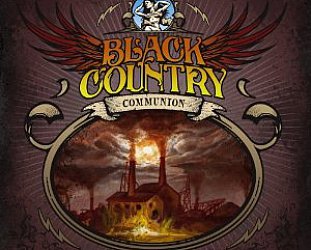
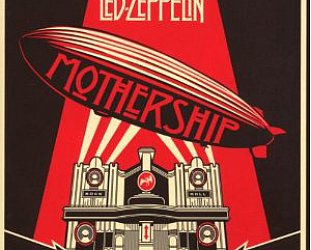
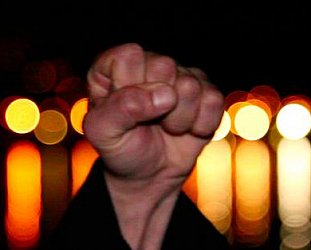
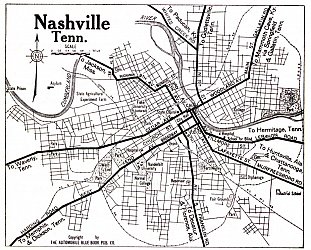
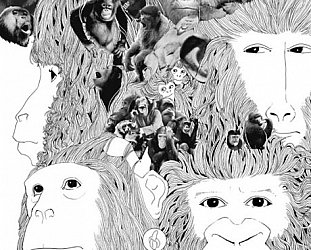
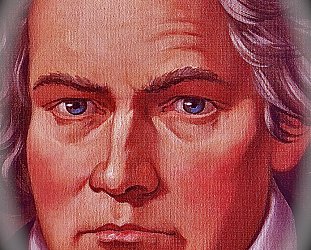
post a comment